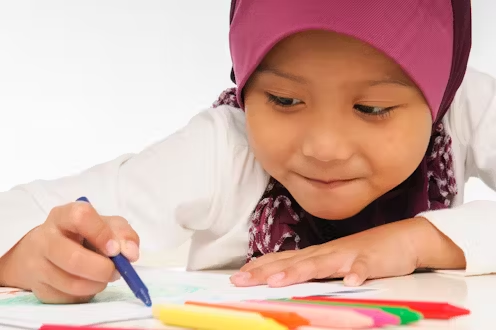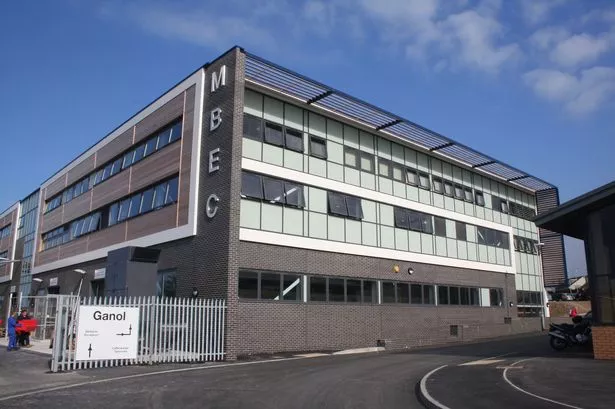Sitting at a table a group of teenagers are chatting quietly. A few years ago the seven students at Mary Immaculate High Roman Catholic High were either missing school or anxious when they found it hard to concentrate or make friends.
Staff at the 900-pupil school for 11 to 16 year-olds in Cardiff said mental health issues had got worse since the pandemic, but were already on the rise thanks to pressures like social media. Their programme, The Bridge, acts as a link between home and school to help pupils who might be struggling for any reason, short or longer term.
The programme, offering everything from counselling to mental health nurse appointments or just a calm place to sit, has become even more important in recent years. Before the pandemic, an average of 20 students per year group were receiving regular interventions at The Bridge, now that has risen to more than 50, or one in four pupils at any one time on average.
Read next: All council services in Cardiff will be looked at for potential cuts next year, says cabinet member
Don't miss: Plans to build four new schools in Cardiff and the Vale thrown into doubt as contractor goes into administration
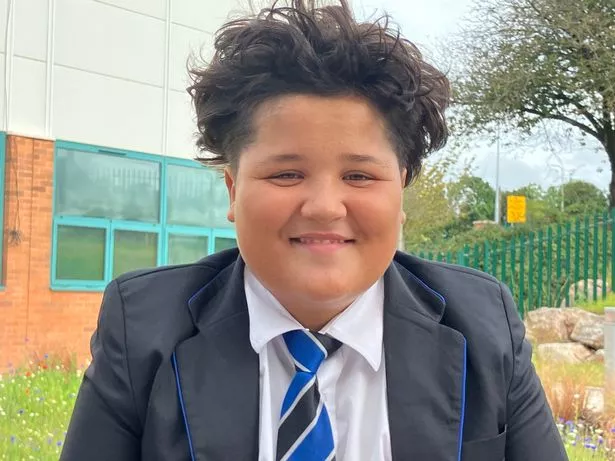
The programme is based in the school’s £1.7m Churchill Centre wellbeing hub which opened in the summer. Beyond private meeting rooms pupils can sit in The Bridge based in a light, open plan area leading to a garden.
Pupils can go there to unwind in a calm, phone-free area during breaks and get any support they need from staff. They can make hot drinks and there is also a toaster and microwave. You can get more story updates straight to your inbox by subscribing to our newsletters here.
As well as being able to drop in, pupils can be referred to The Bridge for more tailored help such as therapy, chats with mental health first aiders, the visiting school counsellor, mental health nurse and even music and dog therapists.
Lovely though the facility is, Nadia Yassien, who runs The Bridge and deputy headteacher Annemarie Wilson stress that its intervention work is a serious business. With so many pressures on young people and class attendance still not back where it was across Wales before Covid they say schools have to act.
It's not always clear who needs help and early action is vital. Mary Immaculate runs a wellbeing questionnaire for all pupils every year to help identify those who might need pastoral help. Young people can mask problems and teachers cannot always easily identify those who might be struggling If anyone is identified their families are contacted and asked if their child would like any help, but the school will only intervene with agreement.
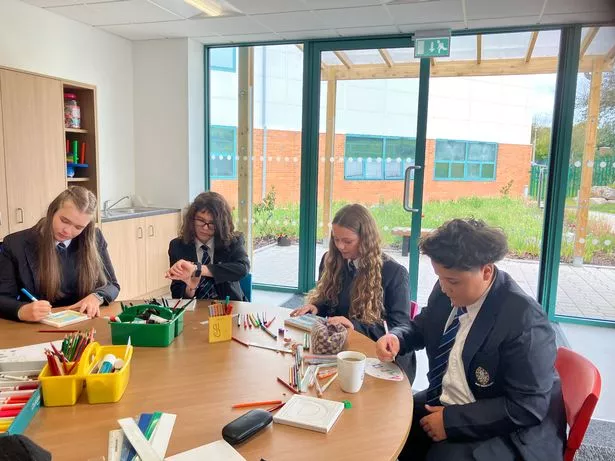
The seven pupils sitting at The Bridge on a sunny autumn morning are happy to share their stories, although this wasn’t always so. All get support for a variety of reasons, from bullying to school anxiety, problems at home and anger management.
All have different stories and personalities but all say they would not be in school and doing better without the help they now have. While some admit they were initially worried that asking for help would make them seem “weird” all said that had not been the case and they were glad they did.
Thirteen-year-old Karmin Junior Richards-Borg aka “Junior” said his anger issues were making him lash out at teachers and peers. He’s gone from getting into fights to liking maths and making friends.
In the two years since coming to The Bridge, Junior said he’d learned to manage the anger better and come to school without getting in trouble: “I was fighting and arguing with teachers but since coming to The Bridge I find it easier. It was hard asking for help, but someone suggested it. I come to The Bridge for an intervention session once a week and to chat about anger. It’s a lot better now.”

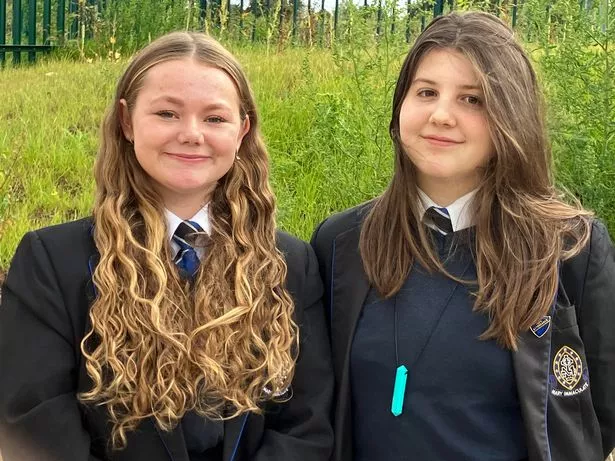
Gethin Rogers believes he wouldn’t be in school without The Bridge, He’s gone from 60% to 100% attendance and got a C in a GCSE he took early, something he said had seemed impossible. “I started in year seven struggling with my mental health and refused to come to school and argued with my mum. Support I have had has helped my stress, but for me it was hard asking for help.
“I think mental health problems among young people are a mix of being stuck at home during Covid and social media when you are comparing yourself. That makes it even more important to be in school.”
Along with 13 year-old Nalani Tyson, Gethin is a prefect for The Bridge and they help support others. For Nalani the wellbeing hub is a place to get away from the stress and sometimes hectic nature of school life which made her feel overwhelmed at times.
Others, like Seren Allen and Stevie Brangan, also both 13, were bullied and needed help dealing with that and building confidence. Stevie was worried the “stigma” of coming to the wellbeing hub might make the bullying worse, but both said that wasn’t the case and they were no longer bullied.
Fellow year nine pupil, Marta Brownnutt, also 13, came to The Bridge after teachers spotted that she wasn’t happy: “I had school anxiety, dreaded school and struggled to make friends,” she said. “Staff noticed and suggested I come to The Bridge where I got help immediately. I now come once a fortnight for a group session and chat and it really helps.”
Amelia Sitek, also 13, got help when her maths teacher noticed she’d lost concentration: “I had some family problems and I couldn’t concentrate but I like school a lot more now - my favourite subjects are art and lunch,” she joked. What is clear is the ease with which the group talks about their struggles and mental health and their mature attitude to asking for help. Gethin may be 14, but he has more sense than many adults when he says: “Everyone needs help.”
How The Bridge works
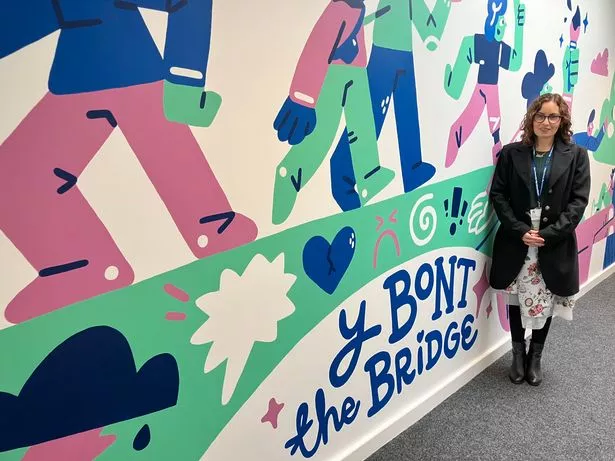
The Bridge runs from Mary Immaculate RC High’s new Churchill Wellbeing Centre. The £1.7m building, funded by Cardiff Council, was purpose built and opened in July, 2024.
In the years it has been going, The Bridge has been recognised as an example of good practice by Estyn and internationally. The specialist provision caters for students with emotional, mental health and wellbeing issues which can range from shorter term issues such as bereavement, family break-up and bullying, to more serious and longer term issues.
As well as counselling, mental health first aid and therapy, wellbeing dog visits and music therapy, The Bridge also offers a sanctuary for any student who wants to drop in at break times.
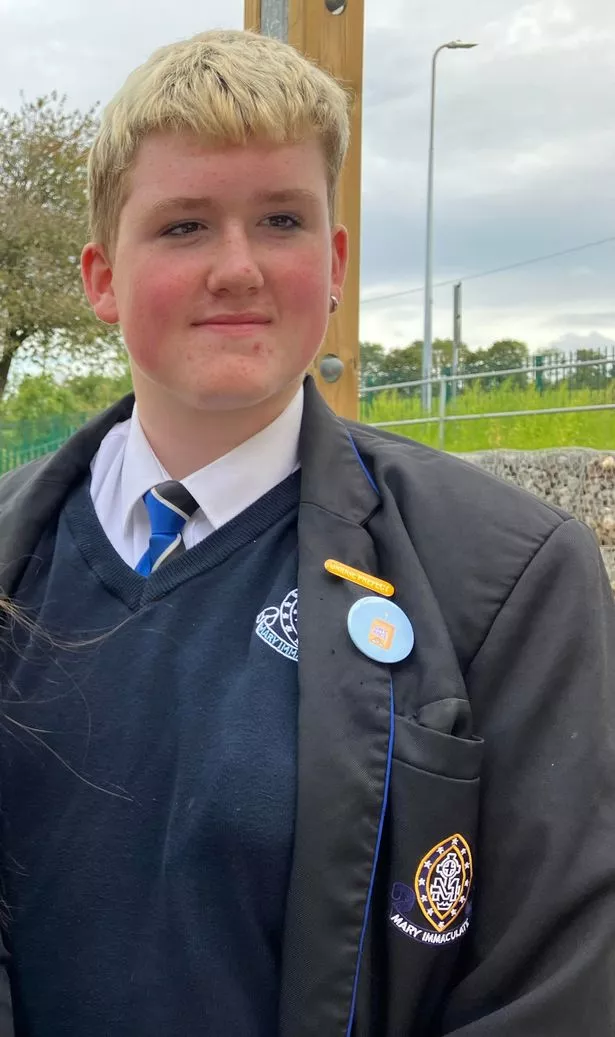
Nadia Yassien, head of The Bridge, said: “Covid increased the number of students with mental health and wellbeing issues, particularly anxiety. There are also a lot more young carers now. We are also seeing a lot of the negative impacts of social media, from cyberbullying to unrealistic expectations. We will never give up on any student, even if takes them until year 11 to turn around, they need to know they are going to be listened to and supported throughout school.
“With the expansion, our partnerships with outside agencies are able to work with pupils in privacy, including mental health services, social services, specialist teams, educational psychologists and the (wellbeing dog) Baxter Project, to name a few.” Staff at The Bridge work with parents and carers, as well as the local authority educational psychology service, mental health services, school nurse teams, social services, and police community liaison officers.
Headteacher Huw Powell was proud of the service and its effect can be seen in attendance rates which are now above the national average at 93%, although that is still behind what it was pre-pandemic. Deputy head Annemarie Wilson said the school was in no doubt the wellbeing help and the hub had improved attendance.
“We think what we do does have an impact on attendance and the school attendance tea is based at the wellbeing centre. There is a connection between non attendance and wellbeing.”
What is happening where you live? Find out by adding your postcode or visit InYourArea.
